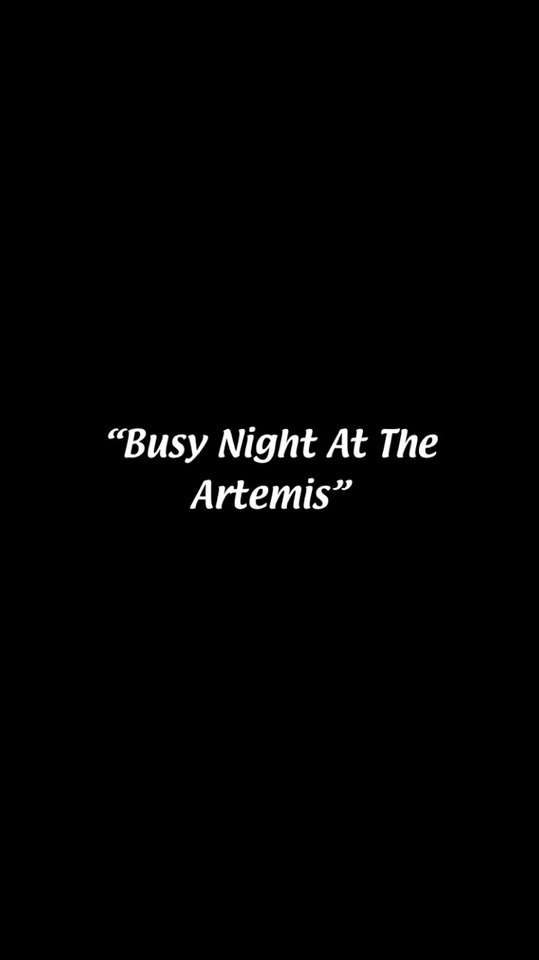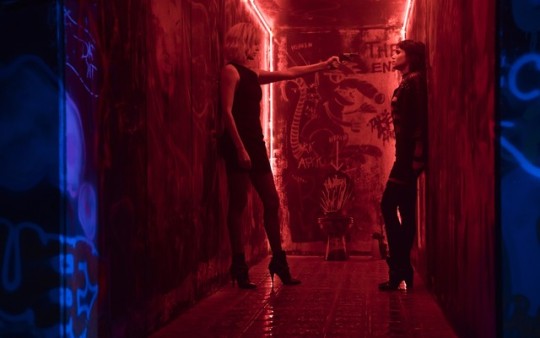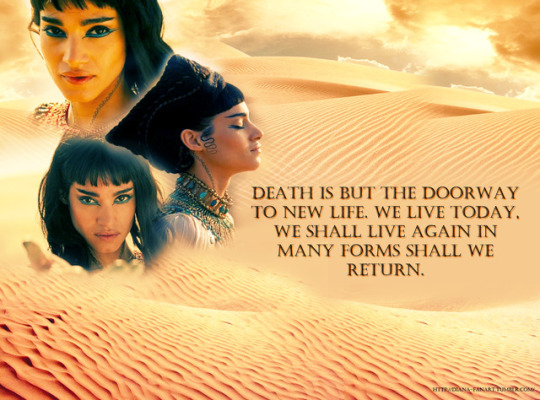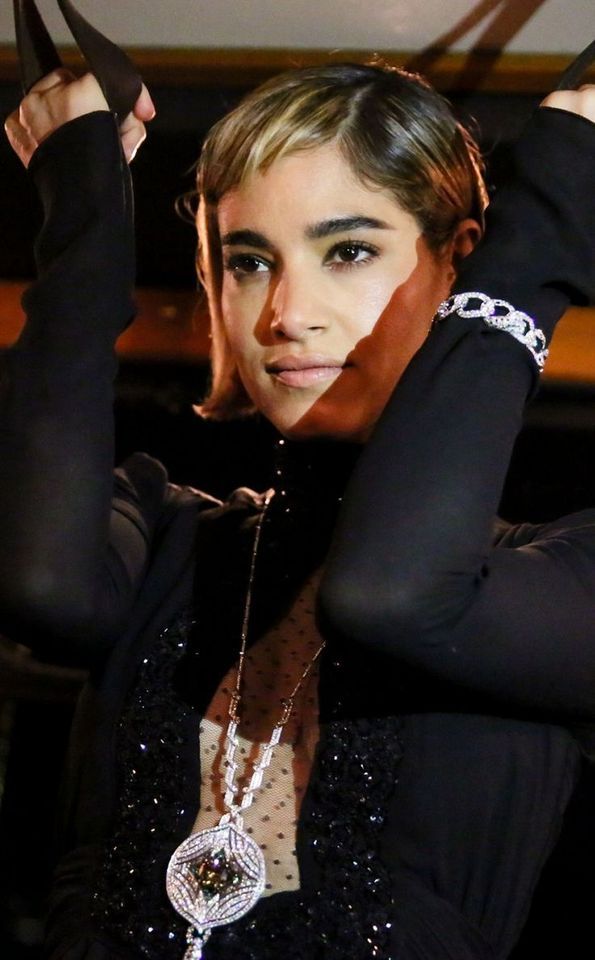#sofia boutella wallpapers
Photo

🦋 GRAPHTOBER 2020, semaine 2: lockscreen edition 🦋
FILMS & SERIES - par @graphtober @wiisemary
(JOUR NEUF) NEON ; feat. ATOMIC BLONDE (2017)!!!!!! me? obsessed?? pffff absolutely, yes 😭 sofia ‘wifey’ boutella + charlize ‘with a gun’ theron + james ‘a mess innit’ mcavoy = 🤰 every time i watch this movie. also the whole aesthetic of this chef-d’oeuvre is the shit.
❀ made by/credits: kawaiinekoj – commissions: open (instagram) ✨ donations: open (kofi) ✨
❀ like/reblog if you use or appreciate this
#kawaiinekoj#graphtober#my art#my edits#graphtober 2020#wallpapers#backgrounds#lockscreens#random lockscreens#aesthetic lockscreens#aesthetic#neon art#neon#filmedit#atomic blonde#typography#graphic art#graphic design#charlize theron#sofia boutella#movies#lorraine broughton#fyeahmovies#spy movies#james mcavoy#david leitch#atomicblondeedits#wlw films#lgbt movies#movie poster
17 notes
·
View notes
Text



i’m having a hotel artemis renaissance,,, please benefit from it
#hotel artemis wallpapers#hotel artemis#acapulco#nice#the wolf king#waikiki#honolulu#iasip#charlie day#sofia boutella#jeff goldblum#sterling k. brown#sac.posts#sac.wp#wallpapers
36 notes
·
View notes
Photo

Star Trek(3840x2160)
1 note
·
View note
Photo

2 notes
·
View notes
Photo

24 notes
·
View notes
Text
Aaron Rodgers - Climax
“Life is a collective impossibility.”
There were so many languages. Aramaic, Phoenician, Etruscan, Tamil, Moabite, Umbrian. Too many languages. From where did they all come? It was a puzzlement, especially if you believed—and if you were authoring the Pentateuch you no doubt did—that all these speakers were branches of a single family tree. Why would Noah’s descendants, leaving the Ark to replenish the Earth, differ so greatly from one another? You needed an etiology, you did. If you were Greek, you might blame Hermes. If you were Bantu, you might blame a famine-induced madness. But if you were writing the Book of Genesis, you might blame, well, God.
The story of the Tower of Babel from Genesis 11 is short—very short. You’ve probably heard it, or at least something like its broadest outlines. In only nine verses no longer than your average nursery rhyme, the postdiluvian people (speaking but one language) decide in their arrogance to build a tower to reach the heavens; the Lord sees it and is displeased; and so the Lord confuses their language and scatters them about the globe. Short, sweet, and to the point: Pride goeth before the globe-scattering fall.
Or at least that is the traditional interpretation. And it’s not an unreasonable one—what few dots there are seem to connect in a pretty straight line, and old-timey Yahweh was quite prone to smiting, having just exited his “drown them all” Great Flood phase. Like so many ancient stories, it easily calcifies into something abstract and removed from the specifics of the story itself. But actually reading the nine relevant verses is quite a time—especially when read from the perspective of an acolyte of God fashioning an explanation for the world’s diversity of languages. For the Lord did not just punish the people for their hubris; he did so out of fear that their unity of language and of purpose would make them his rivals (“and now nothing will be restrained from them, which they have imagined to do”). And the Lord did not choose just any punishment; he chose exactly the thing that the people most feared (“and let us make us a name, lest we be scattered abroad upon the face of the whole earth” / “and from thence did the Lord scatter them abroad upon the face of all the earth”). Taken together, it paints an astonishingly bleak picture—humanity, its highest goals easily scuttled by outside forces, overseen by a vengeful, jealous God more interested in chaos and the psychological scars of a self-fulfilling prophecy than in peace or understanding. (And all this from Moses, one of God’s chief troubadours! Imagine the story a naysayer might have told.)
It’s hard not to think of the Tower of Babel in the wake of Climax, Gaspar Noé’s latest boundary-pushing entry in his own foreboding corner of the cinéma du corps/New French Extremity. Noé is not shy about citing his idols and reference points generally, from Godard to Kubrick to Lynch, nor has he been subtle about the influences on Climax—in addition to referencing the Tower of Babel, Shivers, and The Towering Inferno (among others) in interviews, Noé has helpfully laid out a wealth of data points surrounding the monitor on which he displays his dance troupe’s introductory interviews. Among the citations: Argento’s Suspiria; Fassbinder’s Querelle; Żuławski’s Possession; Pasolini’s Salò, or the 120 Days of Sodom; and Buñuel’s Un Chien Andalou, not to mention various books like Taxi Driver and How to Succeed at Suicide. The ways in which these influences play out are sometimes obvious (e.g., Selva’s (Sofia Boutella) agonized, writhing convulsion in the hallway explicitly recalls Isabelle Adjani’s subway paroxysm in Possession), sometimes less so (e.g., Oscar Wilde’s De Profundis, which—according to Noé, the little stinker—appears because “I like the title and I like the book...because it’s so cruel”). There is no Holy Bible propped up against Noé’s mid-1990s tube TV, but the idea of a vengeful and jealous overseer disrupting an attempt at something greater is central to Climax. As he did in Irréversible, Noé realizes that hell, unbearable as it can be, is only made more hellish by the possibility of heaven.
Climax begins (like Irréversible) with the ending. Lou (Souheila Yacoub), covered in blood, is seen from overhead stumbling through the snow before collapsing. Something terrible has obviously happened to her (this is Noé, after all), but unlike Irréversible, which unfurls a fully backward chronology, this prologue is only a brief flash-forward. After the credits play, Climax introduces us to its large cast via the aforementioned interviews, quickly sketching its players’ backgrounds, interests, and fears as the dancers—applying to be part of some sort of international touring group—discuss sex and drugs and other points of interest to the bohemian twentysomething circa 1996. From there, Climax moves to an abandoned school on the outskirts of Paris where the group is rehearsing, and it is at this point that Noé provides his greatest shock of all: joy. As the dancers krump and vogue and contort in what can only be called harmonious dissonance, Noé’s unbroken take evokes the bygone MGM musical of Stanley Donen and Gene Kelly, celebrating the amazing things a body in motion can do not by simulating that motion through quick-hitting edits but through the camera’s unblinking gaze.
Of course, Climax’s version of the cinematic dance number has a decidedly modern bent not incidental to its overarching themes. The participants in manager Emmanuelle’s (Claude Gajan Maull) group are not performing in the classical Astaire-and-Rogers style, nor do they look like the cast of Singin’ in the Rain. Instead, they are diverse in almost every way—nationally, ethnically, sexually, socioeconomically. What they have in common—in addition to youth—is an affinity for creative movement and a desire/belief (perhaps born of naïveté) that through their collective efforts they can make the world a better place. Climax early on declares that it is a French film and proud of it and a large sequined French flag hangs behind the dancers, framing their efforts. For a time, it seems as though these young performers, accepting of all comers and overflowing with joie de vivre, might represent a new, aspirational future for France, free of the petty jealousies and insecurities and bigotries that define (and mar) life as we know it.
But Noé is not one for uplift, and as the prophetic prologue cautions, this jubilant beginning must come to an end. After their astonishing first dance—several of the most infectious minutes one is likely to see onscreen—the performers become revelers, celebrating their upcoming tour with food and merriment and sangria. That sangria happens to be laced with LSD—something neither the dancers nor we yet know, though some pointed shots of the punch bowl and the too-frequent mentions of its contents suggest trouble—and will soon cause this utopian mini-society to erupt into death and madness. But the eruption is that of a festering boil. Cleverly, Noé follows the initial dance with a series of conversations among the participants, mostly broken off in pairs. While further fleshing out their characters and deepening certain audience connections (and introducing Tito (Vince Galliot Cumant), Emmanuelle’s young son who, being a child in a Noé film, cannot possibly meet a good end), these interactions also reveal the lie behind the seeming idyll we have just witnessed. Sexual gamesmanship, misogyny, mutual distrust, power dynamics, a general unease—even before the drugged wine has taken hold, no amount of common bond or feel-good sentiments can fully inoculate against the crassness and misanthropy of the human condition. Vive la France—unless that French flag plays less than wholesomely to some of the carousers whose skin color may have left them disadvantaged under its auspices. God is with us—unless God, wary of his waning primacy and unwilling to go down without a fight, has been against us all along.
From there, Noé gifts us one additional extended dance sequence—this time shot from above, like a devilish cousin to Busby Berkeley’s showstoppers—but the additional knowledge we have gained makes the number play very differently than its predecessor. It is still exuberant, still exciting, still full of technical and physical marvels, but there is a sense of disquiet coursing through it, of tenuous allegiances and bids for attention. The playful back-and-forth of the first dance feels slightly more strained; the seemingly effortless flow of before is supplemented with an element of jockeying and competition. All these workers building a tower, but unsure about one another’s methods or their mutual destination.
Being a Noé film, it is no surprise that from there Climax descends into recriminations and mutilation, child endangerment and incest, and ultimately into a crimson-lit nightmare resulting in death. Noé’s superb camerawork—always a hallmark—not only complements the dancing beautifully (one truly wishes that he, along with Edgar Wright, would make an out-and-out musical, though for Noé that would almost certainly have to be Sweeney Todd), it also brings to life the increasingly fragile (and ultimately disintegrated) mental states of his crew of revelers. While Selva is probably the closest thing Climax has to a protagonist as the camera follows her back and forth from the common space to the dorm rooms the group has been occupying, no one seems fully safe/sane—not Selva, as she comes undone in front of some nature-backdrop wallpaper; not Lou or Omar (Adrien Sissoko), who abstain from the sangria for personal reasons that end up visiting upon them violence (whether Western culture dislikes a Muslim or a sexually active woman more is a question Climax does not definitively resolve); not even Daddy (Kiddy Smile), as he good-naturedly DJs the proceedings. That Climax employs so much improvisation is nothing short of miraculous, given how intricately some of Noé’s long takes appear to be choreographed. But beyond mere showmanship (of his own or his performers), these extended sequences give Climax the disorienting effect of feeling both dreamlike (or, perhaps more accurately, nightmarish) and realistic. Real life does not employ the careful and selective cutting of a movie, unfolding as its own long take, yet the memories thereof are fragmented in a subconscious act of self-editing, making Noé’s aesthetic appropriately both distancing and suffocating.
This visual evocation of an unyielding descent into hell is complemented perfectly by Noé and Ken Yasumoto’s sound design. The music that previously served as an enthusiastic soundscape turns menacing and relentless, with the percussive beats and throbbing bass driving the drug-addled action perpetually forward, stymieing any possible reflective moment. Yet that merciless music is preferable to the screams and groans it sometimes drowns out—cries that are themselves preferable, in the case of Tito, to a sudden silence that is deafening in its horrific implications. Even the comparatively hospitable environs of the sleeping quarters see Dom (Mounia Nassangar) attacking Lou and Taylor (Taylor Kastle) taking advantage of his sister, Gazelle (Giselle Palmer). As the sangria brings out the group’s (somewhat) latent paranoia and aggression and worst impulses, a downward spiral is inevitable; once gravity takes hold, escape velocity becomes nearly impossible to achieve.
Unlike Irréversible, Noé does not end Climax on a tragic but perversely bittersweet note; instead, he ends it with a possible explanation for the madness that disquietingly suggests that the madness was unavoidable. The perpetrator’s outsider status implies the doomed nature of group activity. The lies told in the instigator’s interview speak to the inefficacy of preparatory efforts. Most upsettingly, the culprit’s name, drawn from Greek mythology and literally meaning “breath of life,” points back to God and the Tower of Babel. The people banded together in an attempt to do something great, something just within reach. But God wouldn’t have it. So he scrambled the synapses a bit—a different language here, a chemically disrupted neuro-receptor there—and voilà, his supremacy was re-established. But to what end? “Look on my works, ye Mighty, and despair,” said a king of kings, until nothing beside remained. Pride goeth before the fall; when the proud one is divine, the fall leads all the way to hell.
#aaron rogers#gaspar noe#cinema#review#obsessed with his reviews#divine#babel#re tag#noé realizes that hell unbearable as it can be is only made more hellish by the possibility of heaven#who being a child in a Noé film cannot possibly meet a good end
15 notes
·
View notes
Photo



sofia boutella
like/reblog if saved/used
requests are open!
#acciolockscreens#requested#c: sofia boutella#sofia boutella#sofia boutella lockscreens#iphone lockscreens#iphone wallpapers#homescreens#lockscreens#wallpapers#arnica.png
2 notes
·
View notes
Photo

Beautiful Girl Sofia Boutella 2018 #2018 #Beautiful #Boutella #Girl #Sofia Beautiful Girl Sofia Boutella 2018 is an HD desktop wallpaper posted in our free image collection of…
1 note
·
View note
Photo

Actress, black dress, Sofia Boutella, 950x1534 wallpaper @wallpapersmug : https://ift.tt/2FI4itB - https://ift.tt/2PWhTm4
0 notes
Text
Interviews with Hotel Artemis Cast: Boutella, Brown, Day and Henry
BEGIN SLIDESHOW
Interviews with Hotel Artemis Cast: Boutella, Brown, Day, and Henry
Check-in for a killer good time with the cast of Drew Pearce’s (Writer of Iron-Man 3) directorial debut, Hotel Artemis!
Set in a not-so-distant future, Hotel Artemis is a member’s only emergency room by way of spa hotel for criminals needing some medical attention in riot-torn LA. The likes of French Nice (Sofia Boutella), Waikiki (Sterling K. Brown), Honolulu (Brian Tyree Henry) and Acapulco (Charlie Day) surrender their lives and safety in a haven run by the Nurse (Jodie Foster). With peace behind the hotel’s walls being as paper thin as the wallpaper, this motley crew finds themselves at the breaking point of a fight that may already have arrived.
In the first half of our interviews we sat down with Boutella, Day, Brown and Henry to talk about their characters in the film, what made them excited to be a part of the world of Hotel Artemis and their excitement to work alongside legendary co-stars Jodie Foster and Jeff Goldblum.
Watch what they had to say in the video below!
Thanks to funding from Malibu mobster The Wolf King (Jeff Goldblum, Thor: Ragnarok), the Hotel Artemis hides a state-of-the-art hospital. This is a members-only E.R. exclusive to high ranking criminals who can follow a few key rules including no weapons beyond the entry. The Nurse (Academy Award® winner Jodie Foster) has run the place for 22 years with the help of her orderly Everest (Dave Bautista, Guardians of the Galaxy) and keeps the place in line– no exceptions. But one fateful night where everyone seems to be needing her including the Wolf King himself, the Nurse’s future is uncertain when a face from her past appears on the hotel doorstep in a cop uniform. Which potentially leads to some rule breaking.
Writer/director Drew Pearce executive produces alongside Jeffrey Stott (Shot Caller) with producers Marc Platt (La La Land), Stephen Cornwell (The Night Manager), Simon Cornwell (The Night Manager), and Adam Siegel (Drive).
Hotel Artemis opens June 8th!
youtube
13
images
The post Interviews with Hotel Artemis Cast: Boutella, Brown, Day and Henry appeared first on ComingSoon.net.
Interviews with Hotel Artemis Cast: Boutella, Brown, Day and Henry published first on https://filmstreaminghdvf.tumblr.com/
0 notes
Photo

Celebrity, short hair, Sofia Boutella, 720x1280 wallpaper @wallpapersmug : https://ift.tt/2FI4itB - https://ift.tt/2Q2duOQ
0 notes